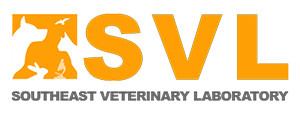Accurate results
Instrumentation, reagents and people can all make errors. A good quality assurance program, is designed to detect and correct errors as soon as possible.
The Veterinary Laboratory Association (VLA) Quality Assurance Program is an external proficiency program specifically designed for veterinary laboratories. We receive sample specimens for our laboratory to analyze and return to the VLA where the data is statistically analyzed and a customized report is returned to us using both graphical and numerical data.
The VLA quality assurance program is a valuable supplement to our own internal quality assurance program.
We are a member of the Veterinary Laboratory Association Quality Assurance Program.
Procedures & Control Methods
- Chemistry: Bi level controls are assayed daily
- Hematology: Whole blood controls are used to verify the accuracy of our automated hematology analyzer
- Endocrinology: Controls for T4, Cortisol, FT4, and TSH are assayed daily
- Cortisol: Tri level immulite control and canine bi-level control
- Progesterone: Tri-level control and canine bi-level control
- T4: Tri level immulite control
- FT4: Bi level immulite control
- Canine TSH- Canine Bi-level control
Repeat Analysis Methodology
- Repeat analysis of randomly-selected patient samples from the previous day, particularly hematology. Repeat analysis should show little variation from the previous day’s results. Significant variation may be indicative of “drift” and the need for calibration or other procedures to insure accuracy and reproducibility of results.
- Repeat analysis of abnormal tests including:
- Ca <8.0 >12.0
- Na <140 >160
- K <3.5 >6.0
- Glu <60
- WBC < 5.0
- HCT <25.0
- PLT <150.0
- T4 <0.9 >4.0
We refer blood smears for pathologist review at no charge when significant abnormalities are detected.
Heartworm
We have become known for providing accurate Heartworm antigen results. We use the ELISA well method for Heartworm antigen. All positive Heartworm results must be verified by repeat analysis and must also be positive by a different Hwag methodology before being reported as positive. If EDTA blood is submitted, the presence of Microfilaria is evaluated microscopically.
